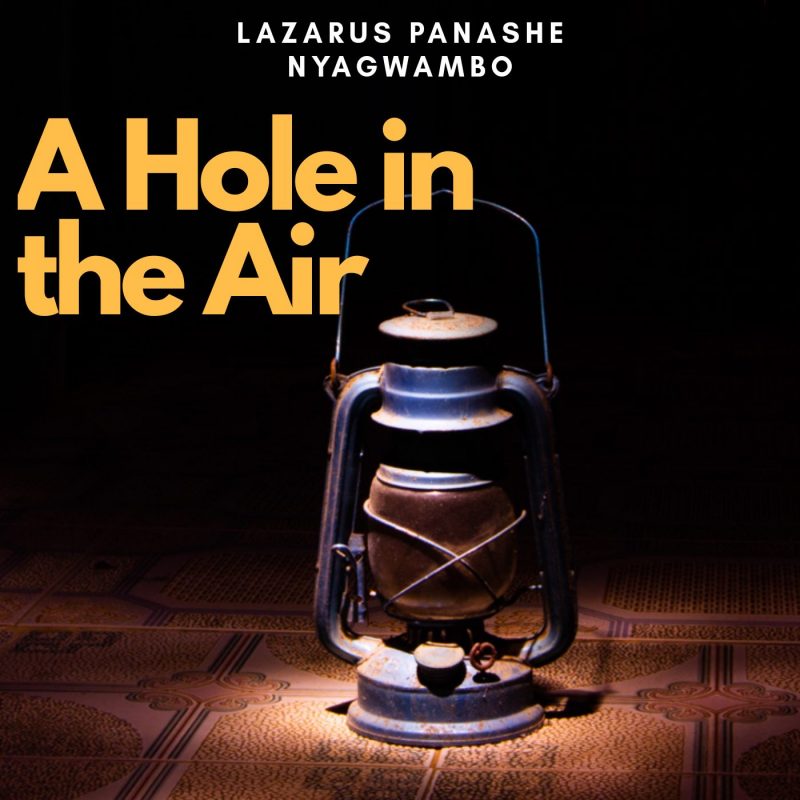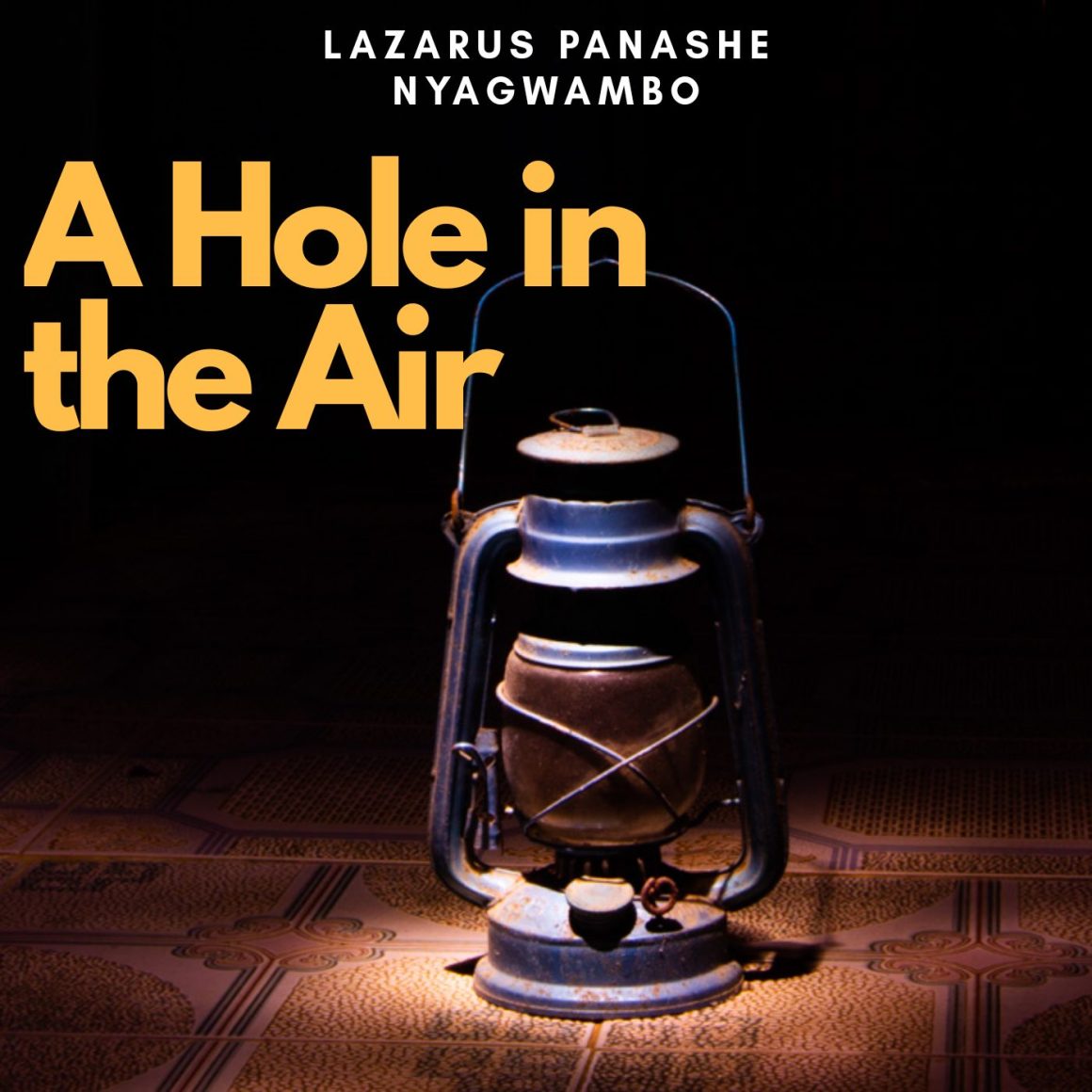
I wish Sekuru would just die already.
I’m not sorry for what the majority of you, in your self-aggrandisement, will no doubt consider my callousness. Maybe my personality can be regarded as crude, lacking a certain refinement that makes it more agreeable, but I would hardly call myself unsympathetic.
The days prior to Sekuru’s illness, my brother, Tonde, had gotten into the habit of waking up at five-thirty in the morning and going jogging. Five kilometres, he often bragged. He would come back sweaty and thirsty, his hairy thighs and calves glistening and bulging below his short running shorts. He would go straight to the refrigerator, often leaving sweat stains on the handles that I often had to wipe. After gulping down two tumblers of brain-freezing water, he would march to our backyard and do thirty reps of pull ups on the swing set that was there. He finished off his morning routine with thirty to forty minutes of callisthenic exercises and stretches on a yoga mat in his bedroom, and ended with a hot bath. He often left puddles of soapy water on the bathroom floor and inside the bathtub which I again had to clean up.
The morning after we learned that Sekuru was ill, Tonde did not go jogging. He did not leave stains on the fridge or in the tub. Infact he did not leave his room until it was time for breakfast. Even then, he did not devour the food like a starved hyena the way he usually did. He picked at it and hardly nibbled at his sweet potatoes before silently leaving the dinner table. I looked at Daddy and then at Mhamha. Their eyes were fixed on their plates with the concentration of one who feared that if they looked away even for a moment, their food would be stolen. None of them seemed to care that Tonde had left before we clapped our hands.
It was Sekuru who introduced the custom. After supper one day on his visit to us, he cleared his throat and said, “We should thank our ancestors and our creator who have given us this food and the life so that we may be able to enjoy this meal together. And also thank the people who work hard every day to put this food before us. I do not know, am I mistaken?” He looked around, and in the way that he often did, took our silence as agreement. Then he and Daddy proceeded to clap in the traditional way of us Manyika people. The males went first. They cupped their hands and then clapped them together seven or eight times in quick succession, proceeded by three slow claps. Then the women followed, their hands cupped as well but clapping perpendicularly to each other until all thanks had been said and all greetings exchanged. After Sekuru left, Daddy carried on with the custom and no one was allowed to leave the dining table until we had clapped. I watched silently as Tonde went to his room and slammed the door shut. Daddy and Mhamha’s eyes remained on their plates.
Even though Daddy’s love for Sekuru had all the restraints of fearful respect that is almost prerequisite in traditional father-son relationships, it was still quite apparent. My father was an only son in a family of five, and therefore by default, Sekuru’s favourite. Even though he was the second born, growing up, he often enjoyed all the benefits of being the first, a condition which made my eldest aunt estranged from him and the rest of the family. Out of all his children’s families, Sekuru visited us the most and stayed the longest. We all knew it was more than him simply not wanting to spend too much time living with his sons-in-law as he claimed.
This favouritism extended to Tonde who also has the added benefit of being Sekuru’s namesake and the older one between the two of us. Saying that I lived in his shadow in the eyes of our grandfather would be a misstatement. No, my brother occupied the spaces that were meant for the both of us.
I felt the effects of this bias the most during the year that we stayed in the village with our grandparents and the holidays that we visited them at the end of every school term, especially during the rainy season when Sekuru used to go to work the fields. When he came back from the farm, he often brought gifts for his grandson. Grasshoppers, birds, tobacco crickets, the first maize of the ploughing season which was my favourite. He would always give them to Tonde and then ask him to share the food with me, a request which, more than anything, felt like a grudging courtesy rather than genuine affection. I lived in a dimension of my own, a cold and unkind elsewhere, and I still bear the scars to show for it. Those scars started itching and bleeding anew after Sekuru became ill.
I called it the season of last breaths, the period before Sekuru got sick. There were four funerals in the space of a fortnight: My grandmother’s brother, sekuru’s nephew, an uncle whose relation to us was obscure. and finally, my grandmother. Even though all the deceased were above sixty, the average life expectancy in Zimbabwe, the closeness of their deaths still raised a fair amount of eyebrows and featured prominently on the grapevine.
My parents attended all the funerals. I think it was the third funeral. Or was it the second? To me they all eventually conflated into one long stretch of silent meals, absent parents and calls from relatives offering their condolences. But I’m certain it wasn’t the last one because we all went for that one. While my parents were away for the second or third funeral, Tonde brought his girlfriend home to stay over the night. I expressed my disapproval by spitting in their food, but in typical fashion whenever Tonde and I were at odds with each other, I ended up being the one disappointed because they never ate the food. That was the first time my brother snuck his girlfriend into the house.
The second time he brought her home, my parents had gone to the village after receiving the news of Sekuru’s illness. My room was adjacent to his, separated by one particularly thin wall, and I’d watched my fair share of porn – strictly for educational purposes – to deduce that my brother was quite proficient in bed. On that day, the sounds I heard weren’t of sex but of someone crying. I could hear the girl whispering her consolation and I imagined Tonde with all his bulging muscles curled up in a foetal position with his head on the girl’s lap, eyes red and watery, as she stroked his head and tried but failed to convince him that everything was going to be OK.
With the news of Sekuru’s illness, gloom infested every corner of our house like mould. It crept in from the fringes of our home, steadily consuming everyone and everything inside. Tonde stopped running and eating altogether. Easily the most vibrant member of our family, his sadness left us all cloaked in shadows. He retreated into his bedroom and then into himself. The only evidence of his presence was the sound of the loud music he played to drown out the sound of his crying.
Then there was Daddy. Like my brother, he chose a prison of his own to contain his grief. For him it was his home office. Mhamha asked me to not call him for meal times anymore but carried his food to him herself. I saw him only when he came for supper, his laptop bag sagging from his shoulder as if carrying the full weight of his despair. He kept his responses in monosyllables and only used full sentences when absolutely unavoidable. The few times he spoke were about the days of his youth and his adventures with Sekuru: going on long journeys, and climbing mountains and overflowing rivers to collect wild loquats. You could tell he was lost in the nostalgia of that past world that had faded to sepia with time. It was a world that had its share of regrets, dreams and missed opportunities. But most importantly it was a world where he had Sekuru, happy and healthy.
But it was more than just sentiment that tore at my father, that chased the sleep from his bloodshot eyes in the night and made him walk about like a lost soul with an invisible burden on his back. There were the financial repercussions of admitting Sekuru in one of the best hospitals and employing the most highly regarded geriatrician. He had to. For eye service more than anything else. He did not want to give his sisters something to talk about. I disagreed with the idea, but I understood. He would never admit it, but it was there in his eyes, the look of exasperation that flashed whenever he handed more money to the lady in the hospital reception, the one with the permanent smile. It was there in the prolonged frown when he sat at the dining table and saw the cabbage or dried vegetables on his plate. Mhamha was not as aggrieved. She was only saddened to the extent expected of her as a wife and daughter-in-law. As a wife, she could not help falling a little under the shadow of the dark cloud that hung over her husband. Sometimes she was uncharacteristically curt with me and wont to sudden bursts of anger. But that was the extent of it.
We visited Sekuru yesterday.
It was Sunday. For the first time since I graduated high school, I went to church. We all did. The last time we did so as a family was when I was still in primary school. Even then it was only so I could clock in enough hours in Sunday school to be baptised and be allowed to gain admission into St. Dominic’s, a catholic mission school that my parents insisted I attend. But yesterday we all did. The ride, like every other family event these days, was silent. I imagined each person was doing their best to suppress the same thought that I had: Sekuru was better off dead. This sudden need to commune with the almighty was nothing more than a desperate effort at repentance for this sinful thought. Or maybe it was just me. The service was “beautiful,” the sermon was “powerful,” and the singing was “angelic.” We went home fat with the Holy Spirit and looking forward to how it would repay us for the forty dollars that we had so generously given to the church. I hear God works in his own time, so I was not too discouraged that everything felt the same as we drove back home.
At the hospital, Sekuru looked a remnant of the man in Daddy’s sepia world. Bursts of violent coughs threatened to disintegrate what little was left of him. His rheumy eyes could barely stay open, and each time they remained shut for too long, anxious glances shot across the room.
The air in the small ward room was thick with something unspoken, something opaque yet intangible, something that filled the gaping holes inside all of us.

LAZARUS PANASHE NYAGWAMBO
is a Civil Engineering Graduate from Near East University in Cyprus. An aspiring author, he spends most of his time observing and dissecting the world and putting the pieces on paper with as few filters as possible. He lives in Harare, Zimbabwe. Twitter: @LazarusPanashe.

